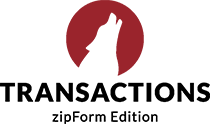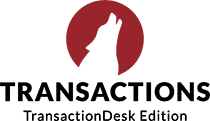
Believe it or not, that time is nearing. As the new year approaches, it’s time to start thinking about the 2025 tax season, too. It may seem early, but taking proactive steps now—especially before the holiday hustle and bustle hits—can save you time, stress, and a whole lot of hassle.
That way you can focus on what truly matters during the holiday season: spending time with family and friends (and a little dash of shopping in there, too).
Why it's not too early to prepare for the 2025 tax season
One word: Audits. Both your own internal audit of your brokerage’s books and the kind of external audits you want to pass with flying colors at tax time.
Audits can be a daunting prospect. Any discrepancies or missing documentation can lead to big headaches and potential penalties. To ensure a smooth tax process, it's important for your brokerage to maintain meticulous records and stay organized year-round. And if there’s anything left to organize, now’s the time to do it.
Then you can avoid the stress and potential errors that come with rushing to meet deadlines, identify and address any potential tax issues before they become major problems, and proactively plan to maximize deductions and minimize your tax liability.
5 ways to prep now for the 2025 tax season with Back Office
First, the key to audit prep is asking questions like these. Did you ever notice a missing form or signature this year? Can you account for every penny spent and received? Can you accurately report on all transactions in your G/L?
Next is finding the answers to these questions—and Lone Wolf Back Office is made just for that. Plus, Back Office prevents you from having to ask those questions after-the-fact in the future.
And while you can’t quite close out your 2024 fiscal year just yet, these are just a handful of ways you can start using Back Office now to prep for tax season 2025—and stay ahead if you get hit with an external audit.
- Review and update your brokerage's financial records
Ensure your financial records are accurate and up to date, including everything from agent commissions to expenses, income, and deductions. Schedule regular reviews of your financials using the built-in reporting tools. Check for any discrepancies or missing data, and make sure that your expenses and income are categorized correctly. - Categorize all income and expenses
Tax time is often stressful due to the sheer volume of financial data that needs to be organized. Go through all your brokerage’s income streams—commissions, fees, and other sources of revenue, and make sure every category is properly labeled in the system. Don’t forget to include operating expenses, like marketing costs and office supplies. - Set up custom commission splits for agents
Back Office lets you customize commission structures based on your brokerage’s needs. Whether you have a standard split, a tiered commission system, or a different type of split structure, Back Office can easily calculate and track these payouts. Review each agent's commission structure and check that all splits are correctly configured. This will not only help you stay compliant, but it will also ensure you’re reporting accurate income and tax data for each agent. - Prepare year-end financial reports
One of the most important steps in preparing for the 2025 tax season is to generate and review year-end financial reports. Back Office provides customizable reporting tools that allow you to track commission payouts, gross income, expenses, and more. Be prepared to generate detailed year-end financial reports, including P&L, Balance Sheets, and other relevant financial documents. Review these reports carefully to ensure everything aligns with your records, and that nothing is missing or out of place. - Prepare for 1099s and W-2s
It’s not too early to prepare for the ever-important tax forms your agents will need. Back Office simplifies the process by tracking payments made to agents and providing you with the tools to generate the necessary tax forms for both employees and contractors. At this point, confirm that all agent payment data is accurately recorded. As the tax season approaches, make sure to run the necessary reports and generate the 1099 and W-2 forms that will be required for filing.
The 2025 tax season doesn’t have to be a source of stress. By taking a few simple steps now, you can make sure that you’re not only tax-ready—but operating more efficiently year-round. Start preparing today and enjoy the upcoming holidays. And bonus: By the time the 2025 tax season arrives, you’ll be well ahead of the game and set up for any audits that may come your way.
Want a preview of what’s to come once the year closes out? Visit our end-of-year Back Office support page for the lowdown.


